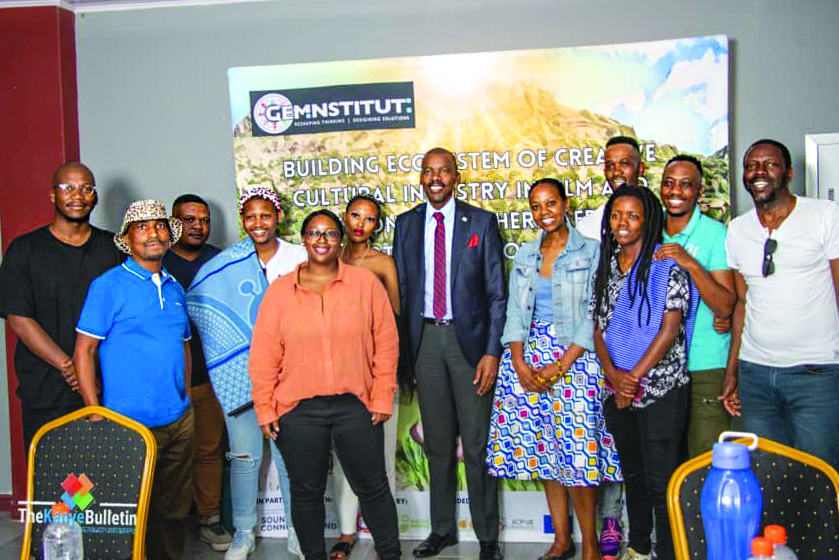Lesotho has introduced major trade reforms to boost indigenous Basotho participation in foreign trade and curb tax evasion by tightening regulation of trade agents.
Unveiled during a press club session hosted by the Revenue Services Lesotho (RSL) and the Media Institute of Southern Africa – Lesotho Chapter (MISA), the new measures form part of the Business Licensing and Registration Regulations, led by the Ministry of Trade, Industry and Business Development.
At the centre of the reforms is the new Code 8294 in Schedule 34, which reserves the role of foreign trade agents exclusively for indigenous Basotho.
“Licensed agents are now authorised to solicit orders on behalf of international suppliers and are empowered to act as exclusive local representatives,” said RSL’s Client Education and Training Officer, Relebohile ’Molaoa.
“These agents will be legally recognised in all customs and import declarations.”
Starting from July this year, only registered Basotho agents will be allowed in customs declarations, a move intended to enhance tax enforcement and limit informal dealings with foreign firms. This reform follows years of revenue losses due to unregistered intermediaries.
To enforce the new rules, RSL is introducing the Agent of Foreign Firms (AFF) Declaration process, supported by a Memorandum of Understanding signed in June 2024 with the Agent of Foreign Firms Association of Lesotho (AFFAL).
The concern, however, from other sections of the society regarding the signed MoU with a single body, is what happens to other agents of foreign firms that are not affiliated to AFFAL.
The new declaration process is to be integrated into ASYCUDA World system and the Private Sector Revenue Management (PSRM) system to strengthen oversight.
“This is about restoring order and fairness to our trade environment,” ’Molaoa said.
In a parallel effort to enhance public service delivery, Ntebaleng Makharilele, Team Leader at the Digital Services Office, introduced a new customer feedback platform allowing clients to rate RSL services and submit complaints or praise.
“This platform gives our clients a voice and helps us assess and improve service delivery,” Makharilele explained.
MISA Lesotho’s Chairperson Kananelo Boloetse praised the reforms and the session’s educational value, calling on journalists to inform the public accurately.
“We must be vigilant in correcting biased narratives and promoting transparency,” Boloetse urged.
The event concluded with a joint call for greater cooperation between the media, government agencies, and the public to foster accountability in Lesotho’s trade system.
The reforms align with the 2024–2027 Corporate Lesokoana Strategy and the Media Relations Strategy, which prioritise public awareness on key policy shifts.
Summary
- Unveiled during a press club session hosted by the Revenue Services Lesotho (RSL) and the Media Institute of Southern Africa – Lesotho Chapter (MISA), the new measures form part of the Business Licensing and Registration Regulations, led by the Ministry of Trade, Industry and Business Development.
- To enforce the new rules, RSL is introducing the Agent of Foreign Firms (AFF) Declaration process, supported by a Memorandum of Understanding signed in June 2024 with the Agent of Foreign Firms Association of Lesotho (AFFAL).
- In a parallel effort to enhance public service delivery, Ntebaleng Makharilele, Team Leader at the Digital Services Office, introduced a new customer feedback platform allowing clients to rate RSL services and submit complaints or praise.

Seabata Mahao is a general news reporter with special focus on Business and Sports. Started working at Newsday in 2021. Working in a team with a shared goal is what I enjoy most and that gives me the motivation to work under any environment leading to growth.







